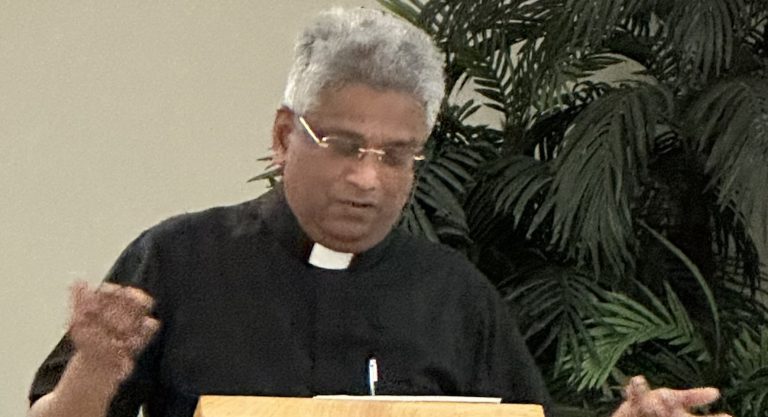FIFTH SUNDAY OF LENT
First Reading • Isaiah 43:16-21
Psalm • Psalm 126:1-2, 2-3, 4-5, 6.
Second Reading • Philippians 3:8-14
Gospel • John 8:1-11
There’s a reason we have four gospel accounts of Jesus’ life and not just one. It is because they are all based on eyewitness accounts.
There were many people who saw Jesus perform miracles and many others who heard His teachings. All of them took away something different.
The four men who wrote down these eyewitness accounts couldn’t include everything that Jesus said and did. So, inspired by the Holy Spirit, they chose what they thought was most important.
In the case of Saint John who is believed to be the last person to write a gospel, he made sure to include stories and teachings that weren’t in the other three gospels so that we could have a fuller picture of Jesus Christ and come to believe in Him.
Today’s gospel of the woman caught in adultery is a case in point. This was a story that Saint John was determined to tell. We know that because of where it is placed in the gospel. It doesn’t fit at all in the story line.
If you read what is directly before it and what follows after it, you can see that the story was shoehorned in there.
It seems as though Saint John couldn’t figure out where the story should go.
Or he purposely interrupted the flow of the narrative to make this story stand out even more.
Whatever the case may be, Saint John wanted this story to be told because it teaches something very important about Jesus – both His love for sinners and the necessity to avoid sin.
In fact, this story echoes the words of Jesus early in Saint John’s gospel that He came to save sinners and not to condemn them. That is why Saint John is so determined to tell it.
It is hard to imagine a more humiliating experience than what the woman in today’s gospel was put through. Not only was she shamed in public, but there was a real danger that she could be killed. But Jesus saves her.
He reminds the crowd that they too are sinners. In the end, it is the scribes and Pharisees who shrink away in shame.
Just as Jesus saved the woman caught in adultery from condemnation, He wants to do the same for us. All of us are sinners. Jesus doesn’t want to add to our burden of shame. He is not interested in punishing us or teaching us a lesson.
To every sinner, He opens His arms in welcome. That is why He died on the cross – to take on Himself the punishment, guilt, and shame that we deserved because of our sins.
The place to experience this forgiving love of Jesus is the Sacrament of Confession. In this beautiful sacrament of God’s mercy, we are like the woman in today’s gospel. Jesus is waiting for you with nothing but mercy to offer.
By warning the woman not to sin again, Jesus is saving her from having to endure more misery in the future.
The truth is that sin is incompatible with the joy and freedom that Jesus wants for us.
It is true that, if we are sorry, Jesus will forgive us every time we sin.
But the point of His mercy is to help us experience a fuller, more abundant life. Forgiveness offers us a fresh start.
So that is the story that Saint John is so anxious to get across to us. Jesus came to save sinners. Jesus came to save you and me. During this life, we will always be sinners, so none of us has the right to throw stones.
But that doesn’t mean we stay stuck in our weakness. Jesus wants to raise us up to a new life that is full of joy and peace – free from the weight of guilt and shame.
Let us learn to look at others the way Jesus looks at us—not with condemnation, but with love that invites change. When we show mercy, we reflect the heart of Christ in our world.

